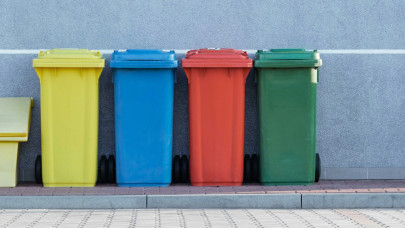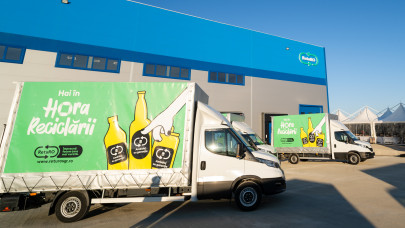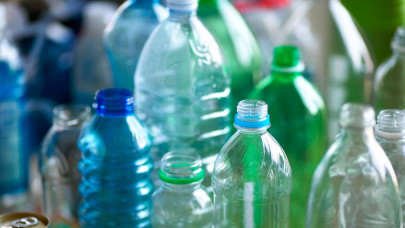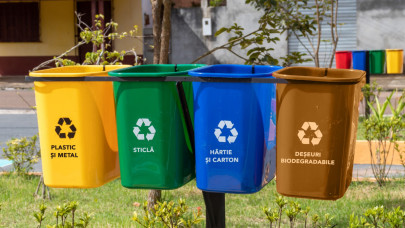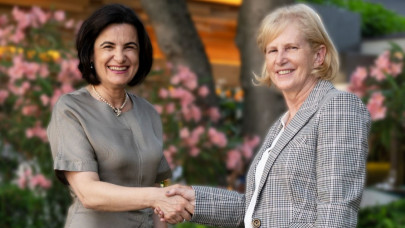"The year 2023 will end with an absolute world record for waste electrical and electronic equipment. Humanity will generate over 61.3 million tons of such waste by the end of the year", according to the RESPO DEEE Association, which shows that only 18% of this waste will be properly treated and recycled.
The representatives of the association explain why these data are very worrying and why waste electrical and electronic equipment (WEEE) is the category of waste with the highest growth rate globally, while the recycling process does not even reach a fifth of the total amount generated.
"According to official data, the Palace of the Parliament in Bucharest weighs 4.1 million tons and is the heaviest building in the world. Now imagine a mountain of electrical equipment waste, 15 times heavier... That's how much humanity will generate this year, which means 3.9 million tons of WEEE more than in 2021 57, 3 million tons. Technological progress, trends, the ever-lowering price of these products, rising living standards, overconsumption, and limited repair options make people quickly throw away old, broken, or underperforming electrical and electronic products. On average, the amount of discarded WEEE increases from one year to the next by 2 million tons and will reach no less than 70 million tons in 2030," says Cristian Pocol, president of the RESPO DEEE Association.
More than 50 million tons of electrical waste were dumped, burned, or illegally traded in 2023 alone.
Of this enormous amount of waste, only a small part ends up being properly collected, treated, and recycled, and this happens because the population has not yet learned sustainable WEEE management behavior and there is still no well-established system to the point, everywhere in the world, through which equipment out of use can be handed in and properly treated, says the association.
"Only 17.4% of the 61.3 million tons of waste, which is a mixture of harmful substances and precious materials, will be collected, treated, and recycled properly globally. The remaining 50.6 million tonnes will either be landfilled, burned, or illegally traded and treated in a non-standard way, or simply stored in households. Let's take into account that this waste contains chemical elements dangerous for the environment and human health, but also elements that can be recovered and reused for the production of other equipment", says the representative of the RESPO DEEE Association.
Even in Europe, which is the world leader in WEEE recycling, only 54% of electrical waste is officially reported as collected and recycled, while the practice of WEEE recycling is completely foreign in the United States, China or India, which is also among the largest countries generating such waste.
"I am not exaggerating when I say that, in less than 10 years, the Planet will be suffocated by electrical and electronic equipment waste, in addition to other categories of household waste, textiles, plastic or glass. At least 50 million tons of such waste now end up in landfills, soil, or water annually, threatening the balance of the human and animal kingdoms. Recycling must become a global policy, and that as soon as possible. Global warming is still being talked about, and the recycling process plays an important role in prevention. The production of new electrical equipment requires resources, which are extracted through mining, and this activity is known to be very polluting. Through recycling, we encourage the circular economy, and thus a large part of the resources will return to the production circuit, and the emission of greenhouse gases will be significantly reduced", explains Cristian Pocol.
Europeans are big consumers of technology, of products that they tend to replace often with new models, so there is a preponderance to generate large amounts of electrical and electronic equipment waste.
Norway is currently the country that produces the most e-waste, 26 kg per capita, according to a study by the Global E-waste Monitor. However, the situation will improve considerably as the country has taken steps to improve the management of WEEE, through a plan whereby companies that produce electrical or electronic equipment and batteries help finance the e-waste and recycling industry.
The UK is currently in 2nd place with 23.9kg of WEEE per capita and is expected to move up to the number 1 position next year, replacing Norway.
In third place in Europe, in the ranking of the countries that generate the most WEEE, is Switzerland, with 23.4 kg per capita.
With 7 kilograms of WEEE generated per inhabitant, Romania is in 21st place in Europe, but we are stuck in recycling because the recycling rate does not exceed 25%, although the norm imposed by the European Union is 65% for collection and 80% for treatment and recycling. However, this norm is contested by many countries today, being impossible to achieve even by the most developed and advanced nations in Europe.
"Even in such small amounts of WEEE generated annually, with an average rate of 25%, we are Europe's leaders in terms of recycling, and this is because many people keep the out-of-use equipment at home or throw them in the household waste or in the environment. It all comes down to education and understanding how we are harming the environment without even knowing it. It is not difficult to change our behavior to be responsible towards society and the environment", explains the president of the RESPO WEEE Association.
Waste electrical and electronic equipment (WEEE) means any electrical equipment, whether connected to the mains or using a battery, that no longer fulfills the function for which it was built.
They should not be kept in the house for safekeeping or thrown in the household waste.
In Romania, people can hand over electrical and electronic equipment for recycling by ordering the RESPO box by phone or online, on the association's website, once received at home or at any other mentioned address, they can insert the small electrical equipment, following this box to be picked up by specialists and transported to recycling centers.
"The RESPO box is the solution we propose so that small electrical equipment does not end up in the landfill. This is made of cardboard and I think we should all have it in our house to collect waste. After it's full, we can take the box to partner stores that collect, we can take it out when the garbage truck comes or we can call tel verde to find out which is the nearest point", concludes Cristian Pocol, president of the RESPO DEEE Association.


